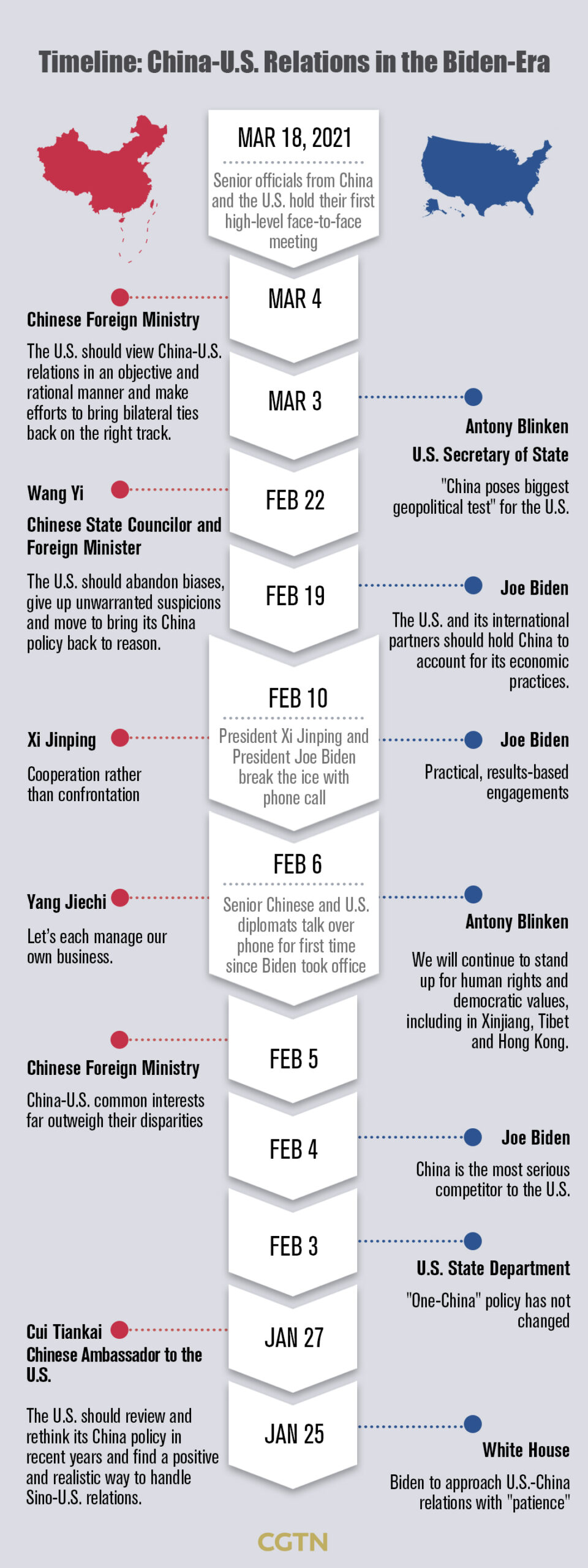WASHINGTON – The US Senate, along party lines, passed a sweeping energy, health, climate and tax package Sunday afternoon, after a marathon overnight vote that resulted in only a handful of notable legislative changes.
The 755-page bill passed after Vice President Kamala Harris broke a 50-50 tie in the evenly divided Senate. It now goes to the House, where Democratic leaders have announced they will take it up on Friday.
“Finally, we’ve arrived,” Senate Majority Leader Chuck Schumer said. Democratic senators erupted in applause when Harris announced passage of the bill, which is expected to total more than $700 billion.
Schumer, a New York Democrat, said he dedicated the measure to young Americans who have pushed and protested for Senate action on climate change.
“This bill will kick-start the era of affordable clean energy in America,” Schumer said. “It’s a game changer.”
The Senate passage marks a major improvement for President Joe Biden’s domestic agenda, after a major package the White House largely wrote and pushed for most of a year failed to win support from centrist Democratic Sens. Joe Manchin III of West Virginia and Kyrsten Sinema in Arizona, dampening the prospect of adopting changes in health and tax policy and major climate spending.
Only two amendments during the so-called vote-a-rama were added to the bill, known as the Inflation Reduction Act, after Democratic leaders earlier made deals necessary to get Sinema and Manchin on board. Under budget-reconciliation rules, the legislation only needed a simple majority for passage instead of the usual 60-vote threshold.
In the last part of the vote and at the last minute, the Senate agreed to an amendment by John Thune, Republican of South Dakota, that made a 15% corporate tax included in the bill apply to fewer businesses owned by private equity firms.
The amendment was supported by Sinema, along with six other Democrats – Raphael Warnock and Jon Ossoff of Georgia, Maggie Hassan of New Hampshire, Jacky Rosen and Catherine Cortez Masto of Nevada and Mark Kelly of Arizona.
The revenue lost initially was expected to be paid for by expanding the ceiling on the deduction for state and local taxes. But that would have drawn opposition from lawmakers in high-tax states like New Jersey who want to get rid of the tax. Instead, the Democrats found their compensation in another tax provision, which deals with limits on the write-off of business losses.
In another major change, Republicans successfully removed a provision capping insulin copayments at $35 in private health insurance plans, citing budget rules. A similar price cap for Medicare remains in the version of the bill the Senate approved.
The price cap has been a priority for Warnock and is likely to be a key campaign issue for Democrats to use against Republicans who voted to remove it. Similarly, Republicans will try to use many of the swing votes in vote-a-rama against Democrats as the midterm campaign heats up.
Seven Republicans voted with Democrats on the insulin supplement: Bill Cassidy and John Kennedy of Louisiana, Susan Collins of Maine, Josh Hawley of Missouri, Cindy Hyde-Smith of Mississippi, and Lisa Murkowski and Dan Sullivan of Alaska.
Progressive changes thwarted
The bill would spend nearly $370 billion on clean energy programs, allow the Medicare health insurance program to negotiate some drug prices starting in 2026, impose tougher corporate taxes and strengthen enforcement by the Internal Revenue Service to bring in more than $400 billion in new revenue over 10 years . This may interest you : The Inequality Pandemic: Agribusiness billionaires benefit from pain in Oxfam Brief – Food Tank.
Independent Senator Bernie Sanders of Vermont pushed for an expansion of the child tax credit and other progressive changes in the legislation, but was repeatedly defeated as Democratic leaders argued that the bill needed to remain intact to secure those two votes from Manchin and Sinema.
The amendment to the child tax credit, which expired in December, was shot down by a vote of 1-97.
Last year, Democrats tried to include a 10-year extension of the program in an earlier version of the reconciliation bill, which would have lifted millions of children out of poverty, but Manchin objected to that, arguing the provision’s price tag — in the Build Back Better bill — was excessive.
Sen. Sherrod Brown, an Ohio Democrat, said Democrats will continue to work on an expansion of the child tax credit, noting the “fragile arrangement” in the bill.
Another failed Democratic amendment came from Warnock, who wanted a provision included in the bill to close a gap in Medicaid coverage for low-income people in his state and others, calling it a “moral moment” for senators.
“I am standing up on behalf of nearly four and a half million Americans in 12 states, including 646,000 Georgians, who, a decade after the Affordable Care Act became law, still do not have access to affordable health care. They’re the working poor,” Warnock said. “They’re being blocked by governors and legislatures.”
But Warnock’s attempt was voted down, after Finance Committee Chairman Ron Wyden of Oregon said he “tragically” had to oppose it to preserve the substance of the bill. Four other senators voted with Warnock: Collins, Ossoff, Sanders and Tammy Baldwin of Wisconsin.
Energy tradeoff
Sanders also examined the bill’s provisions to expand oil and gas development, despite its billions for cleaner energy sources like wind and solar, which Schumer called “the boldest climate package in American history. On the same subject : After heavy criticism for delaying an important veterans bill, Ted Cruz voted to pass it.”
“The bad news is that this bill, as currently written, includes a huge giveaway to the fossil fuel industry,” Sanders said on the Senate floor.
He proposed an amendment that he said would repeal the parts of the bill related to oil and gas leasing, but it failed 1-99.
Sanders’ criticism of the bill’s climate sections echoed criticism from the most aggressive environmental groups, which see the deal between Manchin and Schumer as not strong enough.
The Manchin-Schumer deal, which formed the basis of the budget package, would require the Interior Department to make 2 million acres of federal land and 60 million acres of federal waters available for oil and gas leasing for the next decade as a condition of leasing other federal lands and waters for solar – or wind development.
It’s a move that Brett Hartl, director of government affairs at the Center for Biological Diversity, called “a climate suicide pact.”
Legal and political debates over promoting oil and gas development amid global climate change have raged since Biden took office, partially halting an ambitious agenda that began with Biden promising to ban new oil and gas leases on federal lands and waters.
A federal judge in Louisiana, in a June 2021 ruling, reversed Biden’s January 2021 order to pause new oil and lease sales, saying federal law requires periodic sales.
But in January 2022, a federal judge blocked drilling in 80 million acres of water in the Gulf of Mexico, ruling that the Biden administration did not consider the effect the warming greenhouse gas emissions from the lease would have on the planet.
Immigration policy
Senate Democrats also voted down an amendment by Sen. On the same subject : $ 450 Million New US Aid to Ukraine – US State Department. James Lankford, an Oklahoma Republican, that would have expanded Title 42, a Centers for Disease Control and Prevention health policy that allows Border Patrol agents to turn away migrants at the border during a health crisis, such as like the coronavirus pandemic.
If passed, his amendment would take $1 million out of the Affordable Care Act to keep Title 42 in place. In a vote of 50-50 party lines, the amendment was not approved.
Sen. Montana Democrat Jon Tester also introduced an immigration-related amendment, which would require a comprehensive plan to be in place before Title 42 is repealed.
Six Democrats joined all Republicans in voting for the amendment, which fell four votes short of the 60-vote threshold.
These five vulnerable Democrats, in addition to Tester, included Cortez Masto, Hassan, Warnock, Kelly and Sinema.
Sen. Bob Menendez, Democrat of New Jersey, warned late Saturday that he would vote against the bill if any anti-immigration policies were included in the final package.
“I will not only vote no on any immigration changes, but I will vote no on the final bill if any harmful immigration changes are enacted,” he said in a statement.
“It has always been my north star to pave a path to citizenship for the 11 million undocumented immigrants who call our country home, secure our borders, and fix our broken immigration system, but the Inflation Reduction Act of 2022 is not the right legislative vehicle to address these deeply needed reforms to our immigration system.”
Taxes, IRS boost
In order for Schumer to secure a vote from Sinema, he struck a deal with her to remove a provision from the bill that would change the way certain compensation hedge fund managers and private equity executives are paid, known as carry rates. taxed.
Schumer said Sinema refused to vote with Democrats, “unless we took it out.”
The Congressional Budget Office, a nonpartisan entity, found that if this provision had remained in place, it could have raised $14 billion in revenue over 10 years.
The Schumer-Sinema deal would also change a separate provision that sets a new minimum tax rate of 15% on companies with $1 billion or more in revenue.
The bill would give the IRS a total of $79.4 billion in funding. Of those funds, $46.5 billion will be provided to add 87,000 new IRS jobs to help with tax enforcement and update technologies to enforce taxes on digital assets such as cryptocurrency.
The IRS will also receive $25.3 billion for operating support, and $3.2 billion will go toward taxpayer services such as education and filing services. The agency will also get $4.8 billion to update its business systems.
Many Republicans objected to this, such as Collins adding an amendment to prohibit the hiring of 87,000 IRS jobs, unless those workers are back in the office and not working remotely.
“However, largely due to lax telecommuting policies, the IRS has consistently failed to provide taxpayers with the service they expect,” Collins said in a statement. “As a result, tax refunds have been unacceptably delayed and four out of five calls from taxpayers go unanswered.
Jane Norman contributed to this report.
Our stories may be republished online or in print under Creative Commons license CC BY-NC-ND 4.0. We ask that you edit for style or shortening only, provide proper attribution, and link to our website. See our republishing guidelines for the use of images and graphics.



